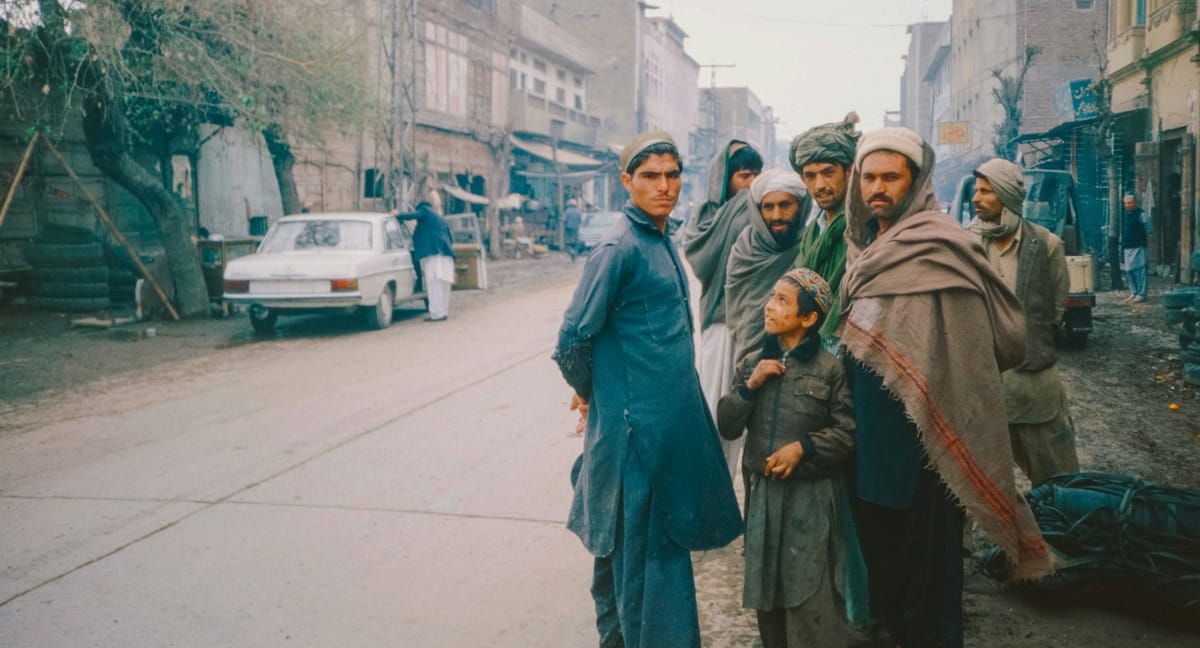Is Shaking Hands with the Taliban Modi's Masterstroke?

When Taliban Foreign Minister Amir Khan Muttaqi landed in Delhi, he didn't just come for diplomatic talks with the Indian officials. He also made a pilgrimage to Darul Uloom Deoband—the theological equivalent of kissing the ring. The Taliban, ideologically spawned from Deobandi seminaries in Pakistan, was coming home to the mother institution. And that institution sits on Indian soil, subject to Indian laws, accountable to a democratic government with a Hindu majority.
Western human rights groups are drafting condemnations. Pakistan-watchers are confused. The Lutyens elite are clutching their pearls over Modi "legitimizing extremists." But everyone's missing what actually just happened: India stopped playing defense and entered a game that Pakistan, Saudi Arabia, Qatar, and the United States have played for decades—weaponizing Islamic theological networks for geopolitical advantage.
My first reaction was the same as yours—disgust, confusion. How could India legitimize these regressive thugs who ban women from education and public life? But then I stepped back and looked at how religious ideology actually operates as geopolitical currency.
The CIA funded the mujahideen. Saudi Arabia financed madrassas that churned out Taliban fighters. Pakistan's ISI used Islamic militant groups as proxy forces for decades. The West has played this game brutally for half a century—they just called it 'strategic partnership' when it served our interests.
The Theological Power Play
For forty years, other powers shaped global Islamic discourse while India sat there taking hits. Islamabad weaponized Deobandi seminaries. Riyadh exported Salafi-jihadism. Washington bankrolled the mujahideen and pretended not to notice as long as the oil flowed and the "war on terror" served American interests.
India was always reacting, always on defense, always firefighting.
But there's a massive vacuum in global Islamic theological authority right now. Saudi Arabia is too busy building NEOM to run its transnational Wahhabi operation at Cold War levels. Qatar has petrodollars but lacks theological gravitas—stuck hiring mercenary mullahs and propping up the Muslim Brotherhood. Pakistan is descending into sectarian violence while its economy implodes, and its relationship with the Taliban has deteriorated into cross-border artillery exchanges.
The Taliban desperately needs international legitimacy. Only Russia officially recognizes them. And suddenly, one of the most influential conservative Islamic theological centers—Deoband, founded in 1866 with authentic roots in Subcontinental Islamic tradition—offers a path forward. Through India.
The Strategic Calculus
If India positions Deoband as a leading Islamic institution worldwide, it gains power to influence how Islam is discussed globally. Deoband can't be overtly hostile to other faiths when the government can shut it down, when its survival depends on conforming to the laws of a pluralistic democracy. The red lines for acceptable Islamic discourse would be set by New Delhi, not Islamabad, not Riyadh, not Washington.
For decades, maybe two or three centers of Islamic theological authority mattered geopolitically: Mecca, Cairo's Al-Azhar, perhaps Qom for Shias. India is positioning Deoband as a fourth pole—one with historical legitimacy and an incentive to promote interpretations that don't advocate for India's destruction.
The Hanafi-Deobandi school recognizes the concept of the nation-state. Deobandis can theologically justify working within national frameworks. This means the Taliban can engage with India without violating their theological principles. It means Deoband can offer an Islamic framework compatible with modern statehood.
The Enemy of My Enemy
The irony is almost too perfect. India and the Taliban share a common enemy: Pakistan-backed terrorism. The nation that created the Taliban now watches its Frankenstein monster turn against it and cozy up to India. When their joint statement condemned "cross-border terrorism from regional countries," everyone knew exactly who they meant.
Pakistan accuses the Afghan Taliban of harboring the Tehrik-e-Taliban Pakistan (TTP), which has launched devastating attacks on Pakistani security forces from Afghan territory. The deterioration is so severe that Pakistani and Afghan forces attacked each other during Muttaqi's Delhi visit. The patron-client relationship has collapsed into open hostility.
Meanwhile, India is reopening its Kabul embassy, closed since the Taliban's 2021 takeover. The Taliban is sending diplomats to New Delhi. Bilateral trade approaches $900 million annually. India provides humanitarian assistance. The Taliban condemns terrorist attacks in Kashmir that New Delhi attributes to Pakistan.
The Machiavellian Calculation
For India, this isn't about endorsing the Taliban's medieval social policies any more than America endorsing Saudi Arabia when they made them a key Middle East ally. India is making a calculated bet that controlling the theological narrative—actually controlling where conservative Islamic thought develops and what boundaries it operates within—is more effective than playing whack-a-mole with terrorist groups funded by foreign powers.
Could this go catastrophically wrong? Absolutely. Foreign governments will spare no effort to bankroll anti-India Islamic factions as a counterweight. Gulf states will fund hostile groups. The surveillance burden is immense. The risk of nurturing extremists who eventually turn against you is real—America learned this lesson in Afghanistan the hard way.
But the alternative is worse. The alternative is continuing to be on the receiving end of foreign-funded pan-Islamic narratives, constantly firefighting, always reactive, never shaping the discourse. It's letting Pakistan maintain leverage through its control of religious networks, exporting ideologies designed to advance their interests at India's expense.
The Long Game
For the first time, a major Islamic theological center that influences hundreds of millions of conservative Muslims operates within the legal framework of a pluralistic democracy that can set boundaries on acceptable discourse. And for the first time, the Taliban sees a path to international legitimacy that runs through India rather than Pakistan.
That handshake between Jaishankar and Muttaqi wasn't just a diplomatic gesture. It was India calling Pakistan's decades-long bluff and reshaping the theological battlefield of subcontinental geopolitics. Is it a masterstroke or a catastrophic miscalculation? We won't know for years.
But dismissing it as Modi "making nice with extremists" means you've fundamentally misunderstood what game is actually being played. Religious ideology has been weaponized as a geopolitical tool for decades. The only question is who controls the weapons.
India just decided to stop being target practice.





